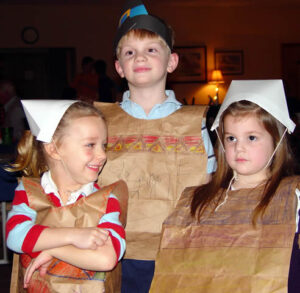
This time of year we gather around the Thanksgiving table with family. Fall colors, generous portions of pie, football games, and a golden brown turkey are all on the menu. The warmth of hearth and home fill our hearts during this special family holiday. If only the actual members of our families were as pleasant and cozy as this idyllic image. Brothers we exchanged harsh words with, uncles without manners, controlling mothers and alienated daughters sit around this family table. We love family, it’s people we have a hard time with. Why is this so painfully true? Because people are not idyllic, they’re real.
What makes relationships worth having is the fact that we can’t control them. We are thrilled when someone freely chooses to love us because we know they didn’t have to. But if they are free to choose us they are also free to reject us. Human will is so mysterious, so independent, and so free that it has the power to baffle and frighten. So, is the goal of a loving family culture possible? Yes it is, if we strive to become the kind of person who is capable of communion.
We can start by learning how to have conflict. Since people are real they will be different. That difference is what leads to conflict. It’s natural, it’s normal, and it’s not necessarily bad. When two people dance they have to adjust themselves to each other’s movements. If one partner imposes his will on the other, the dance becomes stiff, ugly, and toes are stepped on. When a couple dances gracefully, however, they may tread on each other’s toes, but they continually learn how to become more fluid in their movements, together striving to solve the missteps. They don’t fight each other.
When people have conflict they tend see themselves on opposite sides of a line of battle. They lob arguments, emotions, and strong words in hopes of winning. But we’re not at war with our family and friends. We’re on their side. Rather, like a dance, we should see ourselves in a circle, looking at the problem together, not like a war, seeing ourselves on either side of a battle line. The win is when both of us change and we learn to gracefully step in unison.
Conflict is normal because we’re different. Our love and friendship compel us to tackle this problem together as partners not enemies. When we do, the warmth and joy it brings is truly something for which to be thankful.